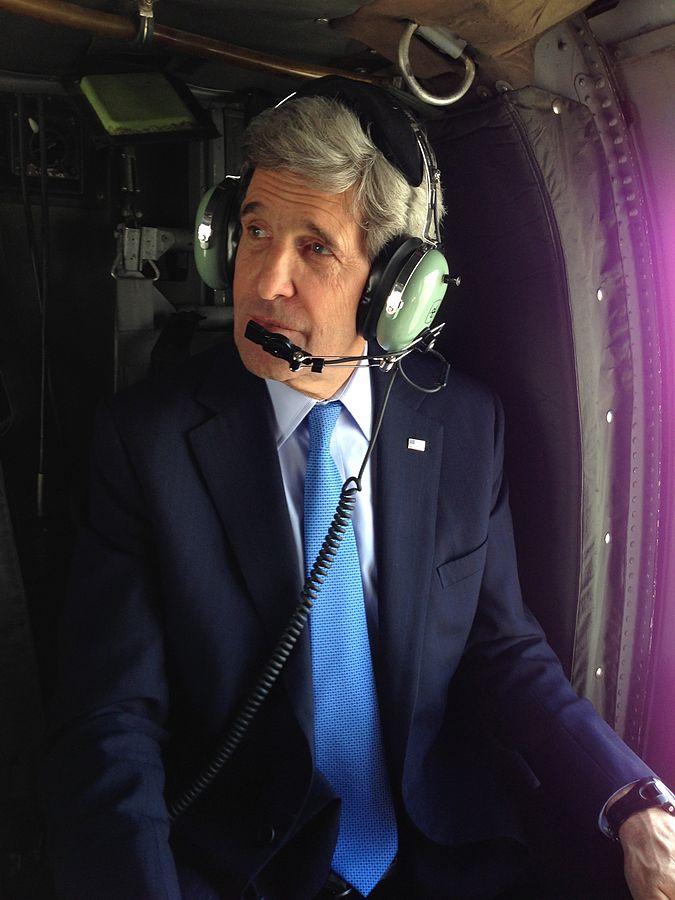
As John Kerry's tenure as the 68th U.S. Secretary of State winds down, his legacy is open to debate, as is the case with his most recent predecessors.
While Hillary Clinton is oft criticized for being too cautious during her time heading the State Department, there is little argument that Kerry’s tenure has been consequential. Whether you agree with his politics or not, it is clear that the former Massachusetts senator and 2004 presidential candidate forged ahead in doing what he thinks is right.
Of course, unlike Clinton, he has no eye on a higher political prize. The two main U.S. political parties no longer give a candidate a second chance if they lose an election; many say Kerry blew his chance 12 years ago. But he can still find further redemption, just as he has the past four years.
As he seeks the next chapter, Kerry has an opportunity to build on a record unprecedented in U.S. history. After all, no other secretary of state used the platform to take action on the global environment quite like Kerry, from his work on last year’s COP21 climate talks in Paris to the former Navy Lieutenant’s advocacy to improve the world’s stewardship of its oceans.
Despite now being in his seventies, Kerry should be able to make a significant impact within the private sector after he leaves the State Department in January. Any company that wants to take serious action to become a more responsible organization on both the environment and human rights (which clearly are intertwined) should have asked for his resume yesterday. Even with only a few months left on the job, however, Kerry is still keeping his eye on current tasks.
And one significant agenda item is on the schedule this week. As global leaders meet in Dubai to update the 1987 Montreal protocols in order to limit production and emissions of hydrofluorocarbons (HFCs), Kerry is urging governments, the private sector and NGOs to find areas of common ground so the momentum from last year’s Paris talks does not stall. Kerry’s advocacy, and work behind the scenes, is one big reason why the U.S. agreed to reduce its total greenhouse gas emissions by as much as 28 percent below 2005 levels by 2025. This commitment from the world’s largest consumer of energy was unthinkable just a few years ago.
Opponents of Kerry’s agenda question why the nation’s top diplomat has spent so much time on environmental problems in light of other pressing challenges. The flip side to that argument is that, since Kerry is not padding his resume, he can focus on issues that will spark controversy and also generate results.
The evidence suggests climate change is already causing instability, from the threats of social unrest due to drought in the Middle East to the damages suffered here at home after Hurricane Sandy in 2012. But these problems should induce more than just hand-wringing: they can also spark new economic opportunities, whether they come in the form of new investments in the clean energy industry or new innovations in the transportation sector.
Furthermore, if businesses are going to survive in the long term, they need a resilient planet that can still harvest the products they need to feed and supply the world, as well as provide long-term value for their shareholders. Hence, more action is needed to ensure the world's oceans are still viable sources of food and its forests are managed properly to provide timber and paper.
A company that brings Kerry on board will show it is serious about sustainable development and changing how it conducts business – provided, of course, he is hired to be a change agent and not a figurehead.
Image credit: State Department/Wiki Commons

Leon Kaye has written for 3p since 2010 and become executive editor in 2018. His previous work includes writing for the Guardian as well as other online and print publications. In addition, he's worked in sales executive roles within technology and financial research companies, as well as for a public relations firm, for which he consulted with one of the globe’s leading sustainability initiatives. Currently living in Central California, he’s traveled to 70-plus countries and has lived and worked in South Korea, the United Arab Emirates and Uruguay.
Leon’s an alum of Fresno State, the University of Maryland, Baltimore County and the University of Southern California's Marshall Business School. He enjoys traveling abroad as well as exploring California’s Central Coast and the Sierra Nevadas.














